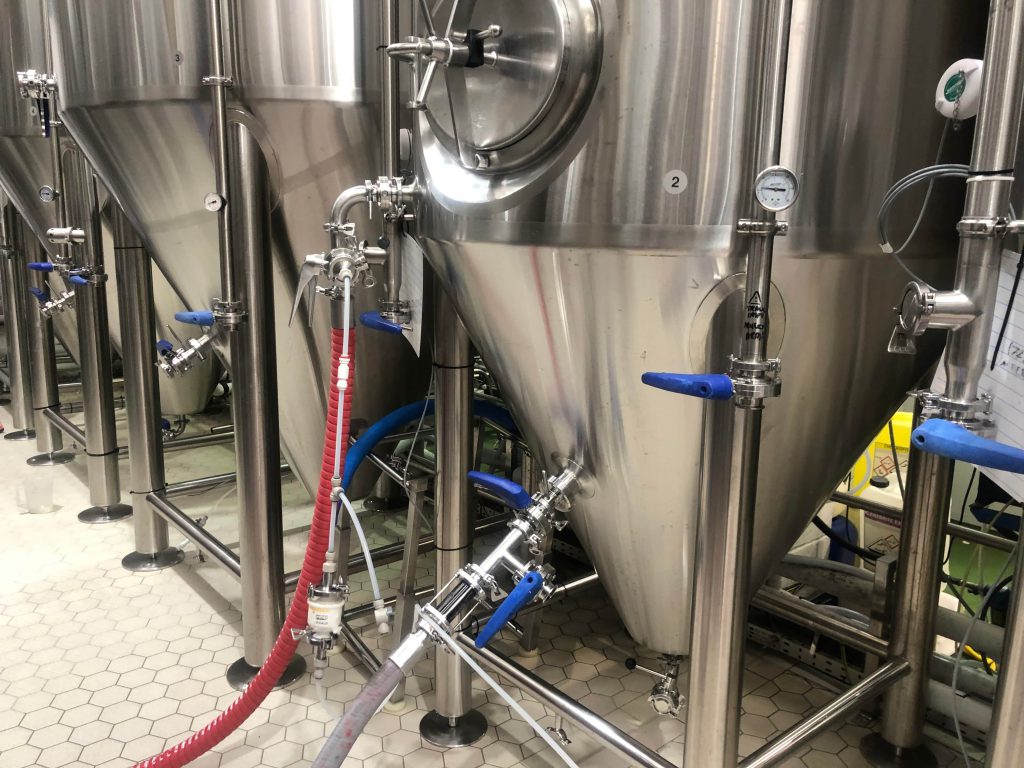Introduction
In the competitive world of brewing, efficiency and quality are paramount. For breweries looking to enhance their production process and ensure product consistency, investing in a high-quality beer filling machine is essential. This advanced equipment not only streamlines the bottling process but also plays a crucial role in maintaining the integrity and flavor of the beer. This comprehensive guide explores the importance of investing in a high-quality beer filling machine, the benefits it brings, and how it can transform your brewery operations.
The Role of a Beer Filling Machine

A beer filling machine is a vital piece of equipment in any brewery, responsible for accurately and efficiently filling bottles or cans with beer. These machines come in various types and configurations, each designed to meet specific production needs and volume requirements.
Types of Beer Filling Machines
Manual Filling Machines: Suitable for small-scale operations or craft breweries, offering control and precision but at a slower pace.
Semi-Automatic Filling Machines: A middle ground between manual and automatic, providing increased efficiency while still requiring some manual intervention.
Automatic Filling Machines: Ideal for large-scale breweries, these machines offer high-speed filling, precision, and minimal manual labor.
Key Features of High-Quality Beer Filling Machines
- Precision Filling: Ensures each bottle or can is filled to the exact volume, minimizing waste.
- Hygienic Design: Made with food-grade materials and easy-to-clean components to maintain beer quality.
- Speed and Efficiency: Capable of filling large quantities quickly, increasing overall productivity.
- Flexibility: Can handle various bottle sizes and types, providing versatility in packaging options.
Benefits of Investing in a High-Quality Beer Filling Machine
Investing in a high-quality beer filling machine offers numerous advantages that can significantly impact the success and efficiency of your brewery.
Enhanced Product Quality
High-quality beer filling machines are designed to preserve the integrity of the beer. By minimizing oxygen exposure and ensuring precise filling, these machines help maintain the beer’s flavor, aroma, and overall quality.
Increased Production Efficiency
Automated filling machines can handle large volumes of beer at high speeds, reducing the time needed for the bottling process. This increased efficiency allows breweries to meet higher demand without compromising quality.
Reduced Waste and Costs
Precision filling minimizes overfills and spillage, reducing product waste. Additionally, the efficiency of automated systems can lead to significant cost savings in labor and production.
Consistency and Reliability
High-quality machines ensure consistent filling volumes and capping, which is crucial for maintaining a uniform product. This consistency builds consumer trust and brand reliability.
Scalability
As your brewery grows, a high-quality beer filling machine can scale with your production needs. These machines are often designed to accommodate increasing volumes, making them a long-term investment.
Table: Comparison of Beer Filling Machine Types
| Feature | Manual Filling Machine | Semi-Automatic Filling Machine | Automatic Filling Machine |
|---|---|---|---|
| Precision | High | High | Very High |
| Speed | Low | Medium | High |
| Labor Requirement | High | Medium | Low |
| Initial Cost | Low | Medium | High |
| Suitability for Large-Scale Production | Low | Medium | Very High |
| Maintenance Needs | Low to Medium | Medium | High |
Choosing the Right Beer Filling Machine

Selecting the right beer filling machine for your brewery involves considering several factors, including your production volume, budget, and specific needs. Here are some key considerations to help guide your decision.
Assess Your Production Volume
Determine your current production volume and projected growth. For smaller breweries, a semi-automatic machine may suffice, while larger operations may require a fully automatic system.
Consider Your Budget
While high-quality beer filling machines require a significant investment, the long-term benefits often justify the cost. Consider your budget and weigh the initial expense against potential savings in labor, waste, and increased productivity.
Evaluate the Machine’s Features
Look for machines with features that match your needs. This includes precision filling, speed, ease of cleaning, and compatibility with different bottle sizes.
Check for After-Sales Support
Reliable after-sales support is crucial for maintaining your equipment. Ensure the manufacturer or supplier offers adequate support, including maintenance services and availability of spare parts.
Read Reviews and Get Recommendations
Research reviews and seek recommendations from other brewers. First-hand experiences can provide valuable insights into the machine’s performance and reliability.
Conclusion
In the competitive world of craft brewing, investing in a high-quality beer filling machine is not merely an expense; it’s a strategic decision that can elevate your brewery’s operations, enhance product quality, and pave the way for sustainable growth. By carefully considering your needs and selecting a machine that aligns with your production goals, you can transform your beer filling process into a cornerstone of your brewery’s success. As the craft beer industry continues to evolve, high-quality beer filling machines will remain indispensable tools for breweries seeking to distinguish themselves and capture the hearts of beer enthusiasts worldwide.
FAQ
What is a beer filling machine?
A beer filling machine is specialized equipment used to fill bottles or cans with beer efficiently and accurately. It ensures consistent filling volumes and minimizes waste.
Why is it important to invest in a high-quality beer filling machine?
Investing in a high-quality beer filling machine enhances product quality, increases production efficiency, reduces waste, and ensures consistency, making it a valuable long-term investment for any brewery.
How do I choose the right beer filling machine for my brewery?
Consider factors such as production volume, budget, machine features, after-sales support, and reviews from other brewers to select the best beer filling machine for your needs.
What are the different types of beer filling machines?
The main types of beer filling machines include manual, semi-automatic, and automatic filling machines, each varying in speed, precision, labor requirements, and cost.
How do I maintain a beer filling machine?
Regular maintenance tasks include cleaning, lubrication, inspection, and calibration. Following a maintenance schedule can help ensure the machine’s longevity and optimal performance.

